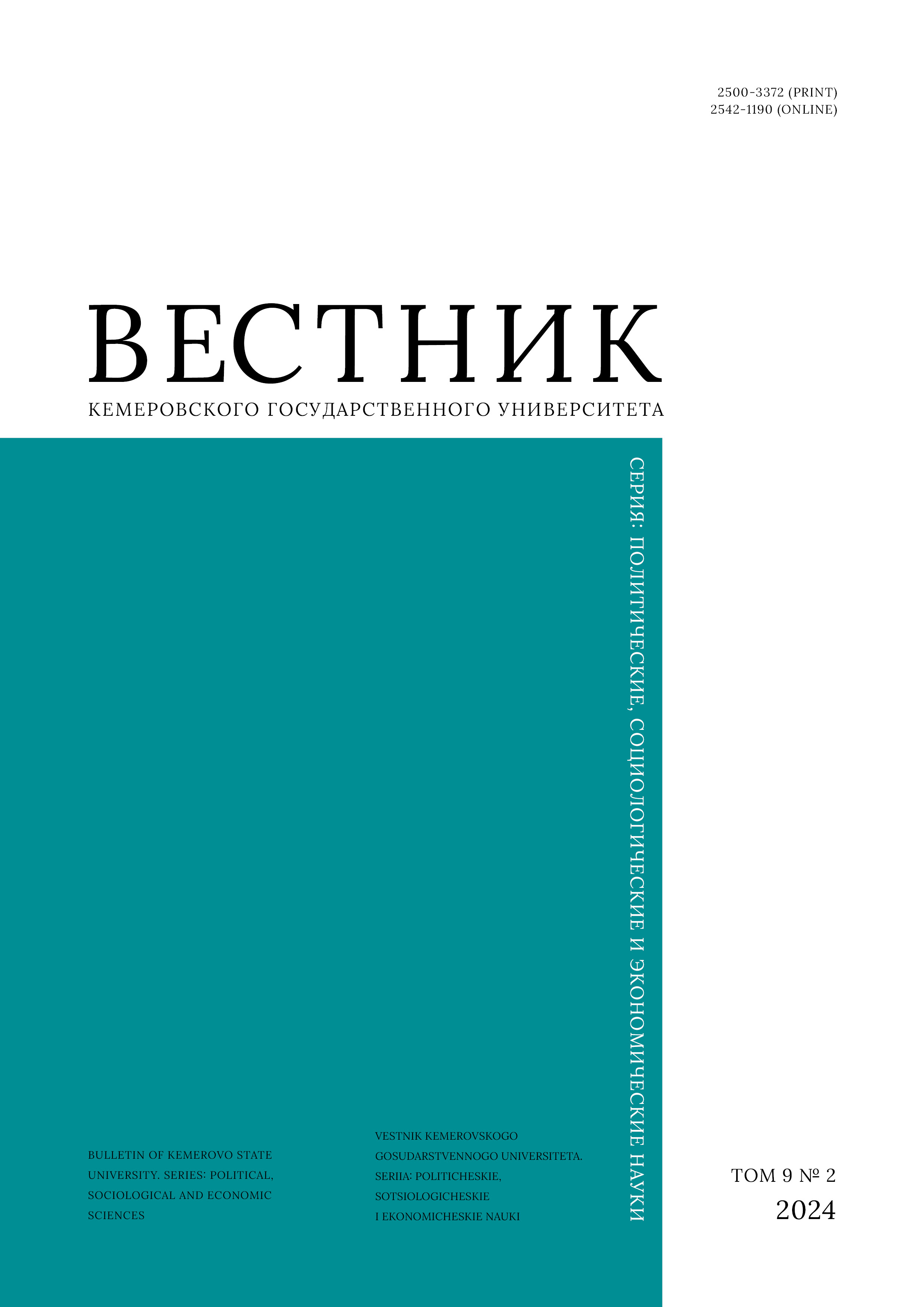Ekaterinburg, Russian Federation
Special events provide organizations with an opportunity to communicate with their prospective customers: private businesses increase brand awareness and loyalty while state socio-cultural institutions pursue various social goals. However, event management as a research subject is shared by many sciences, from sociology to marketing. As a result, no separate science can offer a comprehensive understanding of processes and tools that allow organizations to impact their event visitors. The research objective was to conceptualize the social and communicative tools of event management from digital perspectives. The unified system reflects the multi-channel and time-consuming nature of event management as a total of interrelated impact tools and processes. The author used a systematic and structural-functional approach to conceptualize the social and communicative mechanism in event management. The result was verified against practical approaches specified by the local expert community of event managers. The paper describes the structure of the event-communicative mechanism, including influencing, input-conditioning, and output-correction. The research revealed an additional socio-communicative component, which is based on the properties of reference influence. The goal-setting tools proved to depend on the process in particular or their sets. Instrumental material / information technologies were classified in accordance with the social or communicative components and stages. The concept verification revealed a lack of actual managerial control and coordination of social and self-management processes.
social management, special event, cognitive technologies, social technologies, social engineering, mass events, integrated marketing communications, consumer behavior
1. Duffy M., Mair J. Engaging the senses to explore community events. Event Management, 2018, 22(1): 49–63. https://doi.org/10.3727/152599517X15111988553991
2. Asif M., Ali M. Chinese traditions folk art, festivals and symbolism. International Journal of Research, 2019, 6(1): 1–20.
3. Ryan W. G., Fenton A., Ahmed W., Scarf P. Recognizing events 4.0: The digital maturity of events. International Journal of Event and Festival Management, 2020, 11(1): 47–68. http://dx.doi.org/10.1108/IJEFM-12-2019-0060
4. Simons I. Events and online interaction: The construction of hybrid event communities. Leisure Studies, 2019, 38(2): 145–159. http://dx.doi.org/10.1080/02614367.2018.1553994
5. Vitokhina A. I., Korop M. M. Features of the event-services market, its problems and development trends. Aktualnye issledovaniia, 2020, (2): 45–47. (In Russ.) https://elibrary.ru/sblopl
6. Richards G., Leal Londono M. P. Festival cities and tourism: Challenges and prospects. Journal of Policy Research in Tourism, Leisure and Events, 2022, 14(3): 219–228. http://dx.doi.org/10.1080/19407963.2022.2087664
7. Haewen L. A Study of the relationship between city branding and event content. The Journal of the Korea Contents Association, 2021, 21(7): 328–339. https://doi.org/10.5392/JKCA.2021.21.07.328
8. Tappaskhanova E. O., Bischekova F. R., Handohova Z. A. Theoretical aspects of event marketing. Evraziiskoe nauchnoye ob"yedinenie, 2020, (1-3): 271–274. (In Russ.) https://elibrary.ru/efmllv
9. Çağırkan B., Bilek G., Telli H. The perception of leisure time and concrete historical and cultural heritage awareness among university students. Gümüşhane Üniversitesi Sosyal Bilimler Enstitüsü Elektronik Dergisi, 2021, 12(3): 914–922.
10. Nikonov S. B., Kaverina E. A., Puyu A. S. Mixing sports and political journalism: Modern communication technologies. Theory and Practice of Physical Culture, 2023, (1): 110–112. (In Russ.) https://elibrary.ru/juryqm
11. Pryakhina A. V. Problem of the realization of net sociocultural event-related communication in a crisis situation. Rossiiskaia shkola sviazei s obshchestvennostiu, 2020, (17): 120–132. (In Russ.) https://elibrary.ru/errajs
12. Kaverina E. A. Culture creating potential of events communication. Values and meanings, 2011, (2): 54–59. (In Russ.) https://elibrary.ru/nygxfx
13. Brown A., Donne K., Fallon P., Sharpley R. From headliners to hangovers: Digital media communication in the British rock music festival experience. Tourist Studies, 2020, 20(1): 75–95. http://dx.doi.org/10.1177/1468797619885954
14. Setiawan R., Wibisono D., Purwanegara M. S. Defining event marketing as engagement-driven marketing communication. Gadjah Mada International Journal of Business, 2022, 24(2): 151–177. http://dx.doi.org/10.22146/gamaijb.63788
15. Baturin Yu. M., Xinjun Yu. The omnimedia phenomenon (on the example of the Chinese newspaper People’s Daily). Works on intellectual property, 2022, 43(4): 8–14. (In Russ.) https://doi.org/10.17323/tis.2022.16346
16. Shoshina S. I. Club activities and synergistic mechanisms of culture. Cultural studies of Russian South, 2021, (2): 111–118. (In Russ.) https://doi.org/10.24412/2070-075X-2021-2-111-118
17. Chaplya T. V. Influence of architectural and social spaces on communicative practices of society. Bulletin of Slavic Cultures, 2019, 53: 71–85. (In Russ.) https://elibrary.ru/tcklja
18. Gavra D. P. Social and communication technologies: Today and tomorrow. PR-dialog, 2003, (2/3): 10–13. (In Russ.)
19. Panova E. V. Social-communicative technology of working with public opinion in the context of an environmental incident. Adminnstrative Consulting, 2023, (2): 24–45. (In Russ.) https://doi.org/10.22394/1726-1139-2023-2-24-45
20. Voskoboynik A. M. Concept and development of brand-client communication. Moia professionalnaia karera, 2019, 1(3): 11–14. (In Russ.) https://elibrary.ru/zzxnyj
21. Lokhov M. I., Fesenko Yu. A. The underwater part of the iceberg (Emotion as an outward movement-2). Klinicheskaia patofiziologiia, 2018, 24(1): 39–48. (In Russ.) https://elibrary.ru/yhijxf
22. Azarova J. A. Newsworthiness as a main factor of event's development. Discussion, 2015, (1): 82–86. (In Russ.) https://elibrary.ru/tljebp
23. Voloshinova M. V., Kuchumov A. V. Strategic event management for destination marketing. Professorskii zhurnal. Seriia: Rekreatsiia i turizm, 2022, (4): 21–28. (In Russ.) https://doi.org/10.18572/2686-858X-2022-16-4-21-28
24. Armbrecht J., Lundberg E., Andersson T. A research agenda for event management. Cheltenham: Edwards Elgar, 2019, 173. http://dx.doi.org/10.4337/9781788114363
25. Masiello B., Bonetti E., Izzo F. Multiple identities of a festival: Intended, communicated and perceived brand personality in the social media environment. International Journal of Contemporary Hospitality Management, 2020, 32(2): 749–768. http://dx.doi.org/10.1108/IJCHM-11-2018-0937
26. Patyaeva E. Y. Generation of action: A cultural-activity approach to human motivation. Moscow: Smysl, 2018, 815. (In Russ.)

















